What Is Front Country Camping? Everything You Need to Know
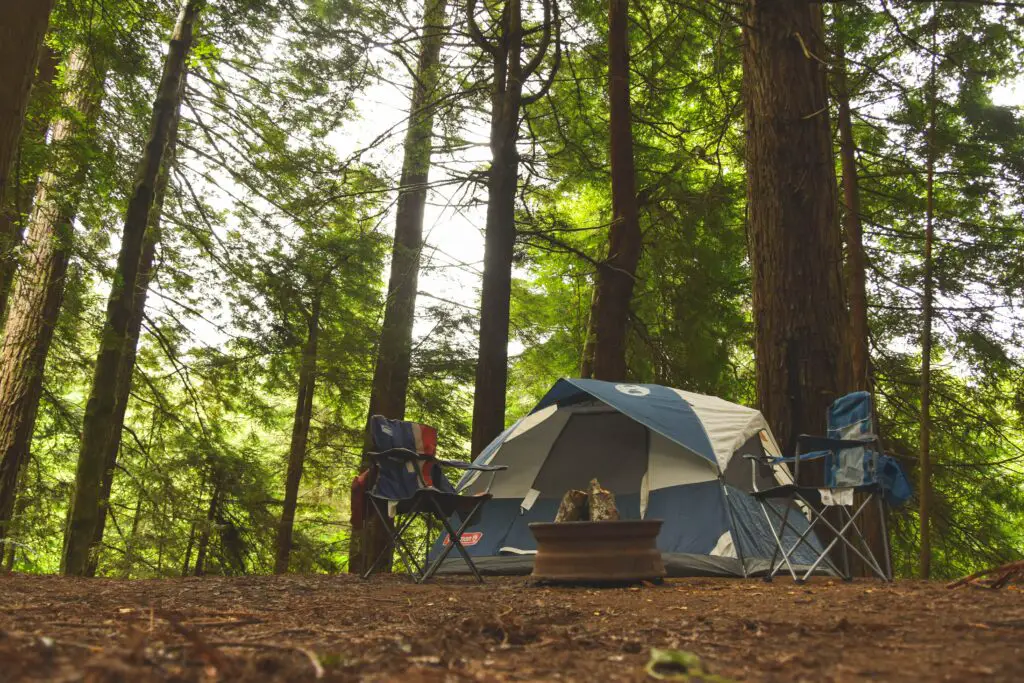
Camping is awesome! It’s a fantastic way to unplug from your daily routine and connect with nature. At Outward Spaces, we love camping so much that we built this website dedicated to it. And while there are various types of camping to choose from, front country camping is one of the most popular ways people camp. But what is front country camping? In this article, we’ll answer that question and provide you with everything you need to know about this type of camping.
Front country camping, also known as car camping or campground camping, is a form of camping that takes place in designated campsites usually with vehicle access. Unlike backcountry camping, front country camping usually takes place in established facilities with included amenities, such as restrooms, showers, and picnic tables.
What is Front Country Camping?
Front country camping, also known as car camping or campground camping, is a type of camping that takes place in designated campsites that are accessible by vehicles. Unlike backcountry camping, where campers must hike into the wilderness to find a suitable campsite, front country camping typically takes place in established campgrounds that have designated sites with amenities, such as restrooms, showers, and picnic tables. In short, it’s a way to enjoy the outdoors without having to rough it too much, making it ideal for families and beginners.
Front country campsites can vary in size and amenities, from small sites with just enough space for a tent to large group sites with enough room for multiple tents, RVs, and other camping equipment. Many front country campsites also come equipped with amenities like picnic tables, fire pits, and access to water and restrooms. Some campgrounds may also offer additional amenities such as playgrounds, hiking trails, swimming areas, and RV hookups.
For most people, front country camping is more accessible than backcountry camping, making it ideal for families, first-time campers, and those who would rather spend more time camping and less time getting to the campsite. Front country camping can be found in state and national parks, private campgrounds, and other outdoor recreational areas. Popular front country camping destinations include Yosemite National Park, Yellowstone National Park, and Zion National Park.
Below are some resources to find front country campgrounds near you:
- Recreation.gov – a searchable directory of more than 113,000 reservable sites across the US. Includes National Park Service and the US Forest Service campgrounds.
- Campendium – a community-driven database of campgrounds, RV Parks, and dispersed camping areas that includes camper photos and reviews
- The Dryt – a website and mobile app that is another great resource for finding campgrounds
Benefits of Front Country Camping
Front country camping offers a range of benefits that make it a popular choice for many campers. Here are some of the key advantages of this type of camping:
-
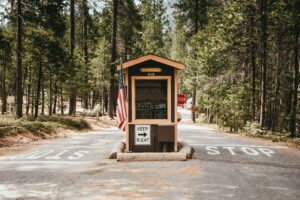
Many front country campgrounds have a manned station at the entrance that provides added security. Access to amenities: Front country campsites often come equipped with amenities like picnic tables, fire pits, and access to water and restrooms. Some campsites even have on-site showers available to guests. This makes camping more comfortable and convenient, especially for those who are new to camping or have young children.
- Safety and security: Front country camping is often located in designated campgrounds that are staffed by park rangers or camp hosts. This can provide a sense of safety and security for those staying at the campground. Knowing that someone is keeping an eye out around the campground has its advantages.
- Convenience: Front country camping is easier than backcountry camping. You pack up your camping gear into the car, drive to the campground, and enjoy. There’s no exhausting hike to your campground and you can bring as much gear as you can stow in your car. Having your car right outside your tent is convenient too.
- Ideal for most campers: Front country campgrounds are easy to access, safe, and family-friendly. Being able to drive right to your campsite and camp immediately allows for more time relaxing in the outdoors – making this style of camping ideal for people with busy work schedules. It’s also a great option for beginners who may not have the experience or equipment necessary for backcountry camping.
- Opportunities to meet other campers: Front country camping can be as social as you want it to be. While you’ll almost always have camping neighbors when front country camping, there’s no obligation to interact with them. Alternatively, if you want to invite your campground neighbors over for dinner or for a beer by the campfire, you may meet some great people.
Front country camping offers a range of benefits that make it the go-to option for most campers. Whether you’re looking for a family-friendly camping experience or a quick and easy way to sleep under the stars, this style of camping offers convenience that can’t be beaten.
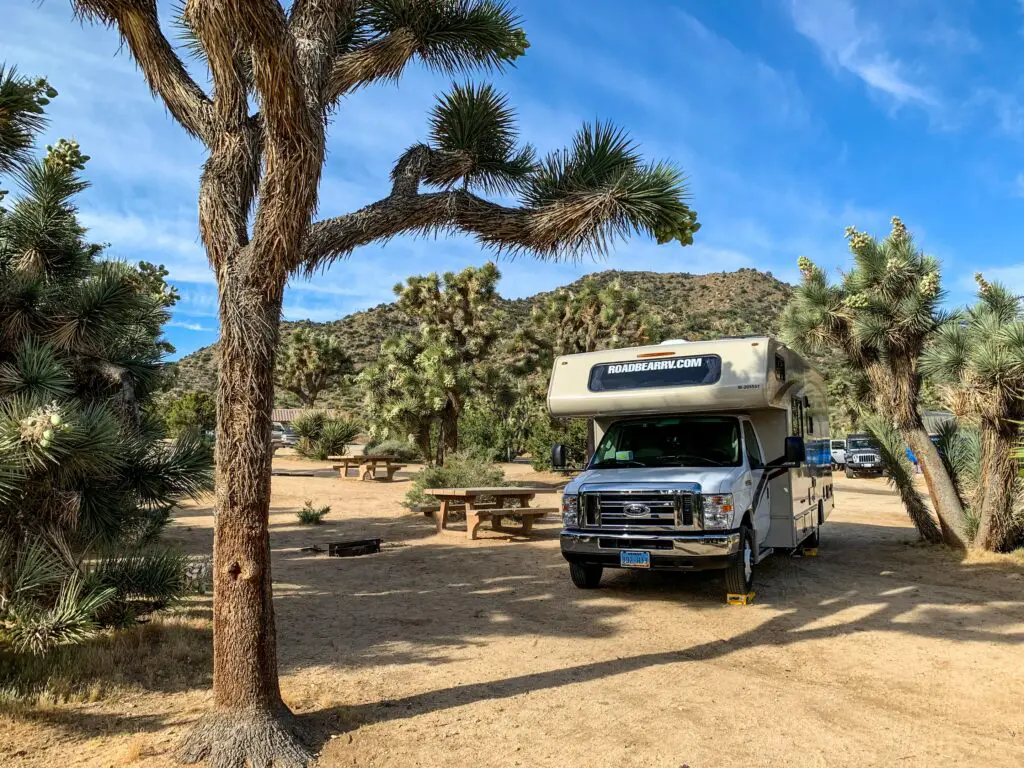
What to Expect from Your Front Country Camping Experience
If you’re new to camping, it’s important to know what to expect from your front country experience. Here are few things to know before going:
- Reservations: Many campsites require reservations in advance, especially during peak season. Be sure to check the availability of campsites and make reservations in advance to ensure you have a spot. The most popular campgrounds often book up months in advance, so reserve your spot early or consider booking a less-popular campground.
- Amenities: Front country campsites are typically equipped with amenities like picnic tables, fire pits, restrooms, and access to water. However, the level of amenities can vary from campground to campground, so be sure to research your campground in advance to know what to expect.
- Campsite setup: When you arrive at your campsite, you will need to set up your campsite. This typically involves setting up your tent, arranging your camping equipment, and building a fire if allowed. If you’re new to camping, consider practicing setting up your tent at home before you go camping to make the process easier. Your neighbors may think you are strange for setting up your tent in your front yard, but a little bit of neighborly embarrassment is worth it to avoid the frustration and fighting that can happen when trying to set up a tent for the first time after a long car ride.
- Camping etiquette: Front country camping often means sharing a campground with other campers. Be sure to respect their space and follow camping etiquette. Be considerate of your noise levels, properly dispose of your trash, and respect the campground’s designated “quiet hours”.
- Activities: Camping this way offers a range of activities, such as hiking, swimming, and fishing. Research the activities available at your campground in advance to know what’s available during your stay.
The Drawbacks of Front Country Camping
While front country camping offers many benefits, there are also some drawbacks to consider. Here are some of the pros and cons of this type of camping:
-
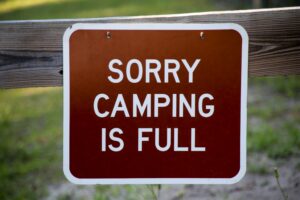
Popular front country campgrounds can fill up quick – especially during peak season. Crowds: Front country campsites can be popular and will be crowded during the peak season. This can detract from the wilderness experience and make it harder to find privacy and quiet.
- Noise: With many people camping in close proximity, noise levels can be high, especially during the day. This can make it difficult to relax and enjoy the quiet of the outdoors.
- Lack of privacy: Front country camping means sharing a campground with other campers, which means you’ll have less privacy. You’ll need to make sure to respect others’ space and practice good camping etiquette.
- Less immersion in nature: Front country campgrounds are often located near roads and other amenities, which can diminish the wilderness experience. For those seeking a more immersive experience in nature, backcountry camping may be a better option.
The Bottom Line
Front country camping offers a range of benefits, including access to amenities, safety and security, convenience, and family-friendliness. It’s a great option for those who are new to camping, who may not have the experience or equipment necessary for backcountry camping, or who prefer the convenience of camping in established campgrounds.
However, it’s important to consider the challenges of this style of camping as well, such as crowds, noise, lack of privacy, and less immersion in nature. For the majority of campers, the “pros” of front country camping far outweigh the “cons”. We highly recommend it for beginners and for more casual campers who love spending time outdoors but want to do it reasonably amidst tight budgets and busy schedules.
Whether you choose to camp in the front country or prefer the back country, the most important thing is that you’ll be sleeping under the stars and enjoying time away from the hustle and bustle of everyday life. Camping is an amazing way to connect with nature, spend time with loved ones, and create lasting memories. So pack up the car and get out there. The wild (or semi-wild) is waiting!
Happy Camping!
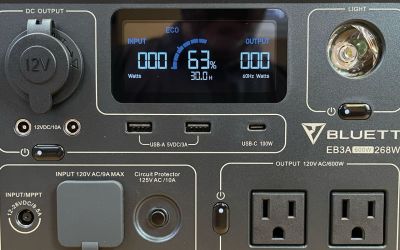

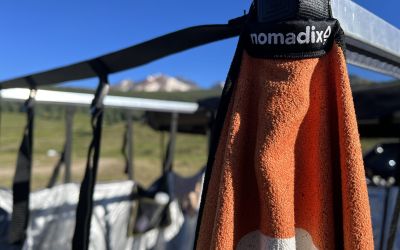
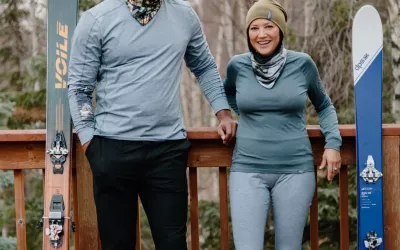
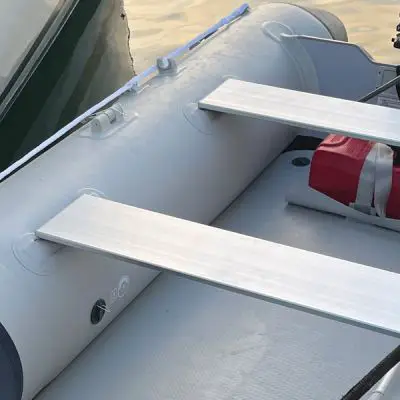
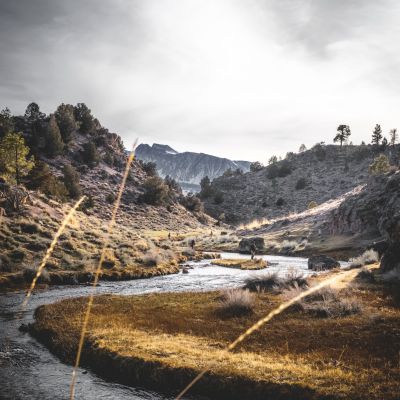
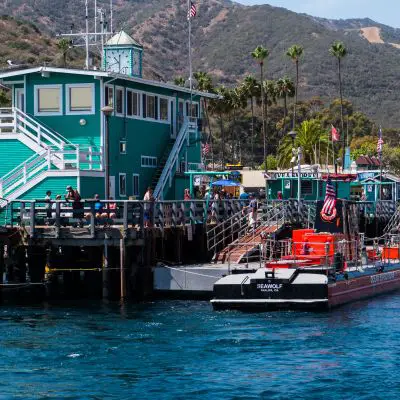
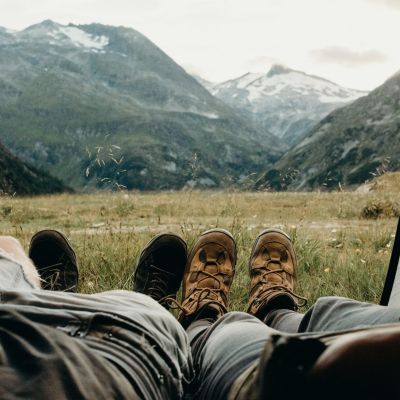
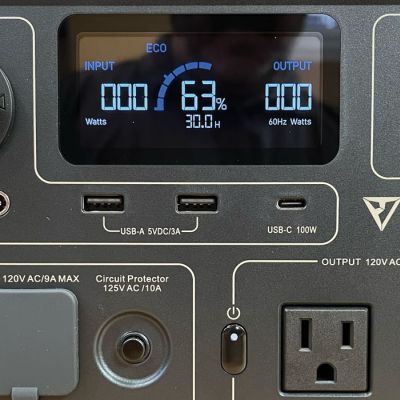

Leave a Reply